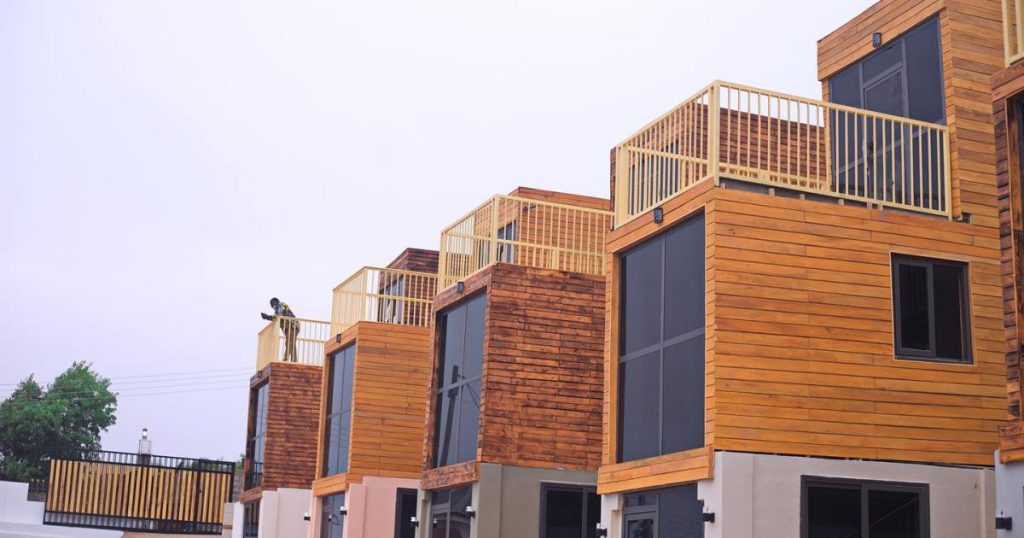Eric Kwaku Gyimah is spearheading a construction project on the outskirts of Accra, Ghana, where discarded shipping containers are being transformed into eco-friendly homes as a potential solution to the country’s housing crisis. With Ghana’s housing shortage becoming increasingly dire, Gyimah believes that offering affordable and sustainable living solutions is essential. His venture, IWoodz Creation, aims to not only provide shelter but also to pave the way for sustainable living models that have a lasting impact on the environment.
Growing up in a region known for its natural beauty, Gyimah was inspired by his surroundings to pursue a career in sustainability. Despite studying banking and finance, his passion for carpentry led him to explore the idea of repurposing shipping containers into stylish and comfortable living spaces for people. By offering affordable homes ranging from $7,000 to $35,000, Gyimah hopes to make home ownership more accessible to a wider range of people in Ghana. Compared to traditional bricks-and-mortar homes, shipping container homes are not only more cost-effective but also eco-friendly and versatile in terms of design and construction.
While Gyimah’s project has garnered praise for its environmental benefits and affordability, some critics have raised concerns about the long-term viability and impact of these homes on Ghana’s housing crisis. Town planners stress the importance of integrating container homes into comprehensive urban planning strategies that prioritize long-term sustainability and community well-being. Housing activists also emphasize the need to ensure that container homes meet adequate standards of safety, comfort, and dignity for residents, particularly marginalized communities who may be at risk of further marginalization.
Despite these concerns, residents like Felix Asante have found success and satisfaction in owning a shipping container home. Asante notes that he was able to purchase a three-bedroom home for significantly less than a traditional concrete house of the same size. With features such as solar panels for energy, good insulation, and natural light, Asante’s family enjoys a comfortable and sustainable living environment. As Gyimah’s business continues to grow and innovate, more individuals and families have the opportunity to own homes that are not only affordable but also environmentally friendly.
Looking ahead, Gyimah is exploring ways to leverage his business to address the housing needs of flood victims following a devastating flooding incident in Ghana. Thousands of people were displaced, including many children who faced disruptions in education and livelihoods. Gyimah envisions collaborating with disaster management organizations to create mobile and decent housing solutions for displaced victims, using shipping containers as temporary shelters or classrooms. By offering innovative and sustainable solutions in times of crisis, Gyimah hopes to provide not just shelter but symbols of resilience and hope for those affected by natural disasters.


